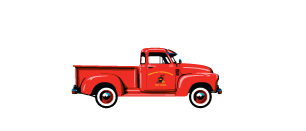Hawaii Business magazine
By Shannon Wianechi
Maui coffee growers step out from Kana's shadow to define their brand.
When James "Kimo" Falconer planted 500 acres of coffee for the Pioneer Sugar Mill Company in 1988, the west Maui location seemed ill suited for the crop. The land is near sea level, dry, and windy- conditions nearly opposite to those in Kona, the prime coffee growing country on the Big Island. But, as it turns out, some coffee varieties thrive in Ka'anapali.
Maui Mokka is Falconer's ace in the field. This ancient cultivar hails from hot and deserty Yemen and produces tiny, round beans. It was initially discounted as too fin icky for cultivation. But when coffee connoisseurs got a sip of the resultant brew, they praised its rich, chocolaty notes. Maui Mokka now retails for $30 a pound- the same premium commanded by 100 percent Kona.
Falconer launched MauiGrown in 2003, after Pioneer Mill closed, abandoning its fledgling coffee business. The determined farmer was able to revive the orchard by blending agriculture with real estate, partnering with Ka'anapali Coffee Farms, a development company that divvied the orchard up into five-acre lots. Private homeowners build on a predetermined acre and lease the remainder to MauiGrown. "It's another way of subsidizing agriculture -- by people who want to live on the property," he says.
MauiGrown harvested 40,000 pounds of beans its first year. As the trees matured, yields increased. This year Falconer hauled in half a million pounds. In addition to Maui Mokka, Falconer grows Red Catuai, Yellow Caturra, and Typic a, selling the raw beans for $5-$10 a pound.
Today, MauiGrown coffee is served in most of Maui's fine restaurants. And last fall, Starbucks chose to feature Maui Mokka in its new Clover shops, where baristas brew boutique coffees for $7 a cup. The actual sale for MauiGrown was nominal at 18,000 pounds, but the boost in name recognition was huge.
The brand's success has bolstered the popularity of all Maui coffees. Falconer is just one of forty-one Maui Coffee Association members, though his business is the most robust. He plans to put another 100 acres into coffee production, and develop a 100 percent Hawaiian variety.
"We've put Maui on the map, in terms of coffee," says Falconer. "People used to ask for Kona or Hawaiian coffee. Now they ask for Maui."
